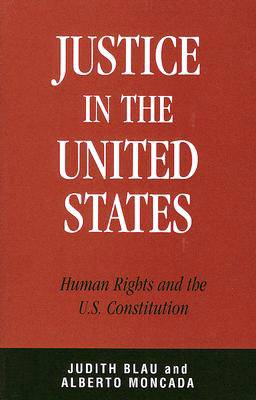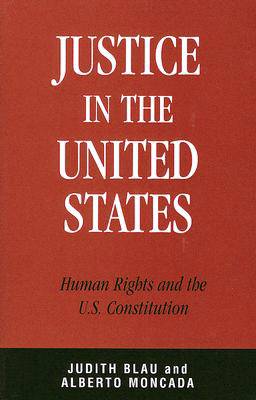
Je cadeautjes zeker op tijd in huis hebben voor de feestdagen? Kom langs in onze winkels en vind het perfecte geschenk!
- Afhalen na 1 uur in een winkel met voorraad
- Gratis thuislevering in België vanaf € 30
- Ruim aanbod met 7 miljoen producten
Je cadeautjes zeker op tijd in huis hebben voor de feestdagen? Kom langs in onze winkels en vind het perfecte geschenk!
- Afhalen na 1 uur in een winkel met voorraad
- Gratis thuislevering in België vanaf € 30
- Ruim aanbod met 7 miljoen producten
Zoeken
Justice in the United States
Human Rights and the Constitution
Judith Blau, Alberto Moncada
Paperback
€ 44,95
+ 89 punten
Omschrijving
All populations, including people living in the United States experience new vulnerabilities with globalization. Other countries have revised their constitutions to protect their citizens from these turbulent forces. The US is a major exception, and this book proposes how Americans might think about constitutional revisions.
Specificaties
Betrokkenen
- Auteur(s):
- Uitgeverij:
Inhoud
- Aantal bladzijden:
- 240
Eigenschappen
- Productcode (EAN):
- 9780742545601
- Verschijningsdatum:
- 3/05/2006
- Uitvoering:
- Paperback
- Afmetingen:
- 151 mm x 227 mm
- Gewicht:
- 390 g

Alleen bij Standaard Boekhandel
+ 89 punten op je klantenkaart van Standaard Boekhandel
Beoordelingen
We publiceren alleen reviews die voldoen aan de voorwaarden voor reviews. Bekijk onze voorwaarden voor reviews.









